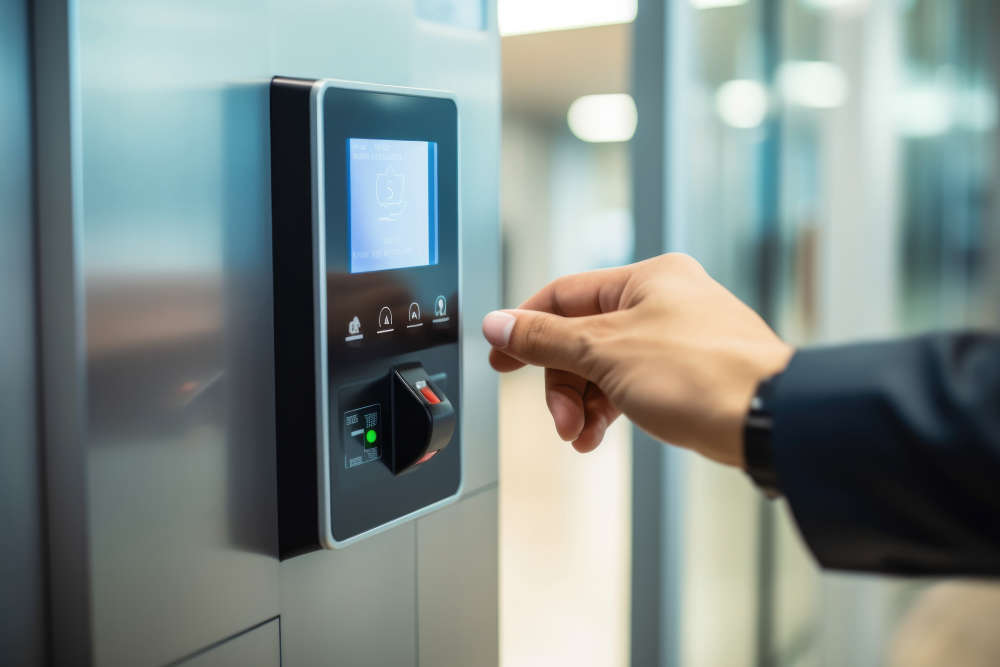Access Control Innovations Elevating Security Standards in Cambridge

For centuries, the trusty old lock and key was the last word in access control technology. However, with the advent of advanced and innovative access control systems, it seems the era of the conventional lock and key is drawing to a dignified close.
That’s what we set out to explore in this article.
The Importance of Advanced Access Control Systems
Cambridge's unique landscape, characterised by a mix of historic and modern architecture, presents distinct security challenges. The city's array of buildings, from ancient colleges to contemporary research centres, demands a security approach as diverse as its architecture.
Security in such an environment has always been challenging, perhaps a little too challenging for the humble lock and key, but office access control systems are rising to the challenge.
Here are some of the key reasons why access control systems are elevating security standards in Cambridge:
· Tailored security solutions: These systems offer customised security measures, ensuring that each building's specific needs are met. Whether it's a historic landmark or a state-of-the-art facility, the right level of protection is provided.
· Enhanced access management: They enable precise control over who enters and exits different areas, crucial for places like research labs or data centres where sensitive information is at stake.
· Increased public safety: By preventing unauthorised access, these systems play a key role in reducing risks such as theft, vandalism, and other criminal activities.
· Cost cutting: By streamlining access control these systems can result in reduced business overheads.
· Efficient emergency response: In emergencies, advanced systems can control and monitor people's movement, aiding in swift and organised evacuations.
These represent a huge improvement over traditional access control systems. At the heart of these is a blend of advanced technologies that are transforming how we secure our buildings.
Innovations and Technologies in Access Control
We are living in an age of incredibly rapid technological advancement. This is great news for the security sector which has always operated on the cutting edge of technology.
In access control terms, the innovations that have been introduced in the wake of this technological advancement have elevated security standards beyond all recognition.
Key among them are:
· Cloud-based systems: Modern access control has embraced cloud technology, offering enhanced flexibility and remote management capabilities. This allows security administrators to control access settings from anywhere, using any device, ensuring constant oversight and adaptability.
· Biometric recognition and AI integration: The integration of artificial intelligence with biometric recognition systems, like fingerprint and facial recognition, has revolutionised access control. AI enhances the accuracy of biometric systems, providing a more secure and efficient method of authentication.
· Mobile access control: The use of smartphones and wearable devices as digital keys is becoming increasingly prevalent. This technology offers convenience without compromising security, allowing for touchless entry and digital guest passes.
· IoT connectivity: The Internet of Things (IoT) has enabled access control systems to be interconnected with other devices and systems. This connectivity allows for real-time data sharing and enhanced situational awareness, leading to more proactive security measures.
· Video verification: Integrating access control with video surveillance adds an additional layer of security. This combination allows for real-time verification of access events, enhancing the ability to monitor and respond to security incidents.
One important factor to consider here is the fact that many of these technologies are in their infancy. The full potential of technologies like AI and IoT is yet to be “unlocked" but one thing is certain, the security industry will continue to push the limits of what is achievable.
Looking Ahead: The Future of Access Control Systems
So, just what does the future of access control systems look like? Predicting technology trends has never been easy, but let’s get the crystal ball out and give it a shot:
· Improved AI algorithms: Expect more sophisticated AI to predict and prevent security breaches before they occur, enhancing proactive security measures.
· Seamless integration: Greater integration with smart city infrastructure, leading to more cohesive and efficient urban security systems.
· Personalised access experiences: Development of systems that recognise individual preferences and adjust access controls accordingly, offering a more personalised security experience.
What is certain is that these systems will continue to evolve and improve, making Cambridge a safer city for those who work, rest, and play within its limits.
Making Cambridge Safer With Innovative Access Control
As we witness these remarkable advancements in access control, it's clear that embracing these technologies is key to enhancing urban security.
For Cambridge, this means not just safer spaces, but also smarter, more responsive security solutions tailored to its unique, historic, and beautiful landscape.